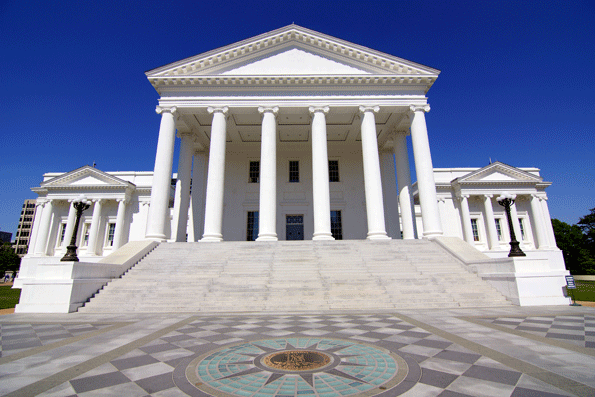
It ain’t over ‘til it’s over. And we still have eggs, rather than chickens – with one exception. But the soprano is beginning to hum her scales.
The Virginia General Assembly adjourned sine die on 9 March 2024. Gratitude is due to the members of the JLC; Rebecca Aarons-Sydnor, Assoc AIA, Ed Gillikin, AIA, Lauren Sughrue, Assoc AIA, and Stephen Weisensale, AIA, the delegation from ACEC Virginia, and our faithful partner and counsel Patrick Cushing, Esq. Additional gratitude to those who asked questions and shared your expertise and perspective along the way.
The bills that have passed are now being considered by the Governor; who may either sign them into law, amend them, or veto them. While the Governor issued a statement to say “[t]hank you to all 140 legislators that made the huge commitment, sacrificing time away from their families, their careers and their livelihoods, to serve the Commonwealth and all Virginians,” he added “[t]he General Assembly sent me more than a thousand bills plus backward budgets that need a lot of work. We’re going to have a busy 30 days going into the reconvene session.” That reconvene session would run 17 to 24 April. So we shall see.
Some notes on a few of the bills we were tracking more closely…
We (lightly) opposed SB409. This bill sought to allow a locality to adopt more stringent energy efficiency and climate requirements. And these are generally good things. But it sought to do so through a legislative rather than a more appropriate regulatory process, and, as a “stretch code,” it ran contrary to the uniformity of the Uniform Statewide Building Code. The bill failed in committee before crossover.
We supported several bills that preserve and promote the historic integrity of the built environment. HB1415 allowed for the adoption of a civil penalty for the razing, demolition, or moving of a building or structure that is located in a historic district or that has been designated by a governing body as a historic structure or landmark. HB1395 provided that the filing of a historic designation application shall keep a locality from issuing any permit to raze or demolish a proposed historic landmark, building, or structure. HB960 and SB556 proposed an increase to the Historic Rehabilitation Tax Credit (HRTC). After some minor drama, the amended versions of the bills increase the HRTC from $5M to $7.5M without adding a cap to the overall program. These bills have all passed and await action by the Governor.
You may recall the workgroup that was conducted over the summer to contemplate recommendations to procurement law concerning the CMAR delivery method. In response to those recommendations, a number of bills were filed. HB1108 and SB18 contained the least undesirable of those proposals. We supported those bills early in the session and then monitored developments as the coalition strained and became more fragile. Ultimately, the coalition held and those bills passed. They await action by the Governor.
HB368 and SB195 directs the Board of Housing and Community Development to convene a stakeholder advisory group, including firefighting professionals, to evaluate and recommend revisions to the Uniform Statewide Building Code to permit Group R-2 occupancies to be served by a single exit, provided that the building has not more than six stories above grade plane. We supported these bills and have lobbied to have an architect included in the advisory group. These bills have passed and await action by the Governor.
We also supported two bills that proposed changes to our regulatory boards; DPOR and APESLCIDLA. HB350 reduced the quorum required to continue to conduct the progress of the board; an unfortunate but recurring issue. This bill passed and awaits the Governor’s signature. HB120 permits a distinction amongst the actions of the board such that certain suspensions, such as bouncing a check when renewing a license, are not bluntly reported as a disciplinary action – which could be construed as a more serious and substantial violation. That bill has been signed by the Governor and is now law; effective 1 July 2024.
Our role in defeating the NOIRA that sought to reduce regulations in the Building Code by twenty-five percent can also be numbered among our achievements.
We were afforded a particular opportunity when we were asked to participate in a meeting of the NOVA caucus. We were included in a panel to discuss affordable housing. I am grateful to the members who provided their expertise and experience so graciously – and on short notice – and learned me up so I could give voice to our positions and perspectives.
All in all – a good outing [so far]. Thanks to all who contributed; both directly and indirectly. Make your donation today at www.aiavapac.org
